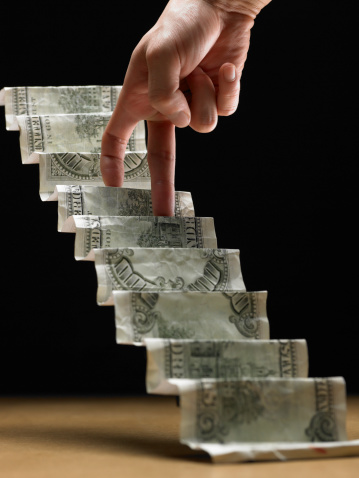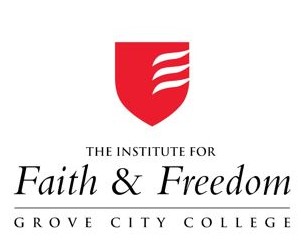Left Condemns Wealth, But Exaggerates Money’s Power

Liberals love to express their contempt for wealth but profoundly exaggerate the power of money. To them, money in the wrong hands is the source of all evil while placing money in the right hands is the solution to every problem.
Consider the left’s current approach to three pressing national dilemmas: a crumbling education system, persistent poverty and elections that seem increasingly corrupt and meaningless.
Concerning education, whenever Democratic mayors, governors or presidents address disappointing public school results, they instinctively respond with the same misguided remedy: throw more money at every reported problem. This reflex ignores all available evidence on educational performance, which shows no correlation between per-student spending and academic success. For instance, the most recent numbers from the Department of Education show schools in Washington, DC spending far more for each pupil than educational facilities in any other big city. Figures indicate schools in the federal capital now shell out $29,349 per student, with the New York City schools a distant second (at $23,966).
And what’s the result of all this lavish expenditure? According to 2013 testing from the government’s National Assessment of Educational Progress, 83% of Washington eighth graders can’t read at a “proficient” level – a worse result than any of the fifty states. Mississippi finished second to last, registering an average reading score of 253 compared to Washington’s breathtakingly dismal 248. Despite the fact that schools in an economically disadvantaged Southern state spend only a fraction of what the clueless administrators spend in the nation’s capital, the students there fared a bit better in both reading and math.
The shocking nature of these results reflects more than the wasteful nature of bureaucratic spending; it also indicates that educational success or failure can’t be credited or blamed on local economic conditions. In terms of business growth, rising salaries and soaring real estate prices, Washington, DC ranks at or near the top of any list of states, and yet all that money can’t buy decent performance by the local schools.
Apologists try to explain such failure with reference to the demographics of DC: the student body in public schools counts as overwhelmingly poor and black, with a disproportionate number of single-mother households, while wealthier children from more functional families (like the Obama girls) register at a variety of pricey private academies. These observations highlight some of the deeper difficulties for many big city school systems, but the Washington record still proves that spending more money does nothing to address those challenges.
In the same sense, liberal, dollar-based programs to address the painful predicament of America’s poor, dramatically illustrate the wisdom in H.L. Mencken’s immortal observation that “for every complex problem there is a solution that is clear, simple and wrong.” At the moment, Democrats everywhere push a raise in the minimum wage as a cure-all meant to lift millions out of poverty. This approach pointedly ignores the intractable handicaps that afflict the most destitute families, and that can’t be addressed by an instant increase in the hourly wage. An appalling 20% of American young people still fail to graduate from high school, and this population naturally makes up a disproportionate segment of the impoverished population. If the president gets his wish and wins a sharp, three dollar-an-hour increase in the minimum wage, it might add a bit of buying power to struggling households but would do little to place a high school dropout with limited skills on the path to middle class stability. Democrats propose a new minimum wage of $10.10 an hour, which would bring a yearly income of $21,000 for a full-time worker, before payroll deductions for Social Security, Medicare and other purposes. If such a minimum wage laborer is the only source of income in his or her household, this hardly means a passport to an easier, dramatically different life, especially if the chronic habits of many impoverished people (playing the lottery, spending on cigarettes and booze, buying on expensive credit, conceiving children out of wedlock) continue to leech money out of the family budget.
Academic studies combine with common sense to demonstrate that poor people don’t become middle class people through receiving more money, but rather by developing new skills, adopting different values and deploying more reliable strategies for advancement.
Finally, the left demonstrates its bizarrely inflated sense of the importance of money with its fervent desire to place strict limits on contributions to political campaigns and to provide public monies to empower candidates who can’t raise it themselves. Democrats fear that wealthy donors can buy victory in elections, just as they believe that more spending on education can buy improved performance, or more money to the poor can put an end to chronic poverty. While no one doubts that extravagant spending can sometimes help in a challenging campaign, it hardly offers a guarantee of victory.
Meg Whitman, one-time e-bay executive and GOP candidate for governor of California in 2010, learned that lesson the hard way: she broke an all-time record by spending $144 million of her own fortune to fund her campaign, but still lost in a landslide to Democrat Jerry Brown. This year, David Alameel, a wealthy Texas dentist, has invested $9 million in an effort to win the Democratic primary, though he is given no chance whatever of defeating incumbent Republican John Cornyn. In a previous race, Alameel squandered $4.5 million in a failed bid for a seat in the House.
All in all, The Campaign Finance Institute identified 69 candidates for the House or Senate in the last two cycles alone who devoted at least $1 million of their own money on a run for office. Of these big spenders, more than 80% went down to costly defeat. Big money in politics purchases frustration and heartbreak more often than it guarantees victory.
Despite liberal assumptions to the contrary, simply writing checks can’t win elections, or put an end to poverty, or improve educational performance. Simplistic belief in the magical, redemptive power of money representatives the ultimate folly of leftist materialism – the conviction that ethical, spiritual, relational problems will yield to purely material solutions. Even the most recalcitrant progressives probably remember the old song that says, “money can’t buy me love,” but it can’t buy you success in other spheres either.
Moreover, the left misunderstands the true significance of money: it’s a product of successful behavior, not a cause of such conduct. Hard work, decent values, self-discipline, intense focus and kind treatment of others will guarantee better financial results to every individual; those same patterns of behavior also make success in education, escaping poverty, and political candidacy vastly more likely. Despite liberal fantasies to the contrary, simple infusions of cash won’t do the trick.
This column originally appeared at TruthRevolt.org on May 19, 2014.






















